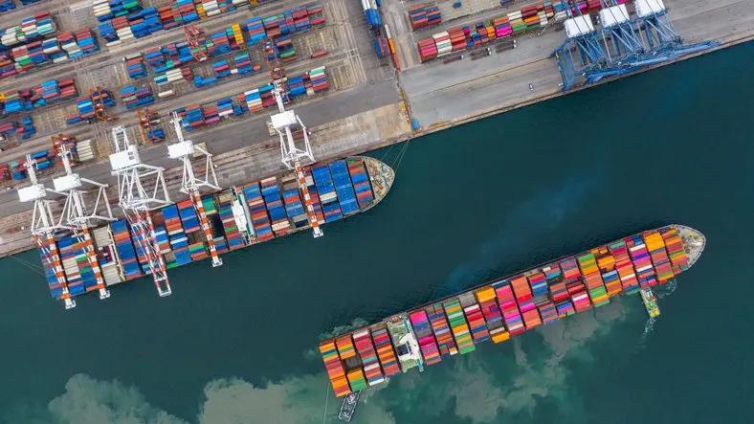The Ghana Union of Traders Association (GUTA) has welcomed the newly passed Ghana Shippers’ Authority (GSA) Law, saying it will offer the Authority “the teeth to bite” to effectively regulate the shipping industry.
The Association said the law would empower the GSA to exercise control of the port and have the power to approve or disapprove import charges that affect the general cost of doing business in the country.
Speaking at a stakeholder engagement organised by the GSA in Accra, Dr Joseph Obeng, President of GUTA, said the regulation of charges would give respite to businesses and ensure their growth.
“We have been propagating all this while that we revive the laws of Shippers Authority so that they can have proper mandate to control.
“The cost of doing business in this country is just too high and this Act seeks to empower Ghana Shippers Authority to do just that for us to make sure that some controls are brought to bear so that they can approve or disapprove; so that we can have the respite to do our business and grow,” he said.
The stakeholder engagement sought input for setting up a Legislative Instrument (LI) that would guide the implementation of the new law.
The trade associations that were engaged include Association of Ghana Industries (AGI), Ghana National Chamber of Commerce and Industry (GNCCI) and the GUTA.
Dr. Obeng encouraged other stakeholders, including clearing agents, to also get involved in the GSA’s stakeholder engagements so that all of them would get their concerns addressed in the LI and ensure benefits for all.
Parliament on Monday July 29, 2024, passed the Ghana Shippers’ Authority Bill 2024 into Law after its successful third reading on the floor of the House.
The new law which amends its 50 years’ old establishment law, NRCD 254 (1974), will regulate commercial activities of shippers, and primarily address the issue of unfair and excessive charges that burden traders who use Ghana’s sea and airports, as well as land borders to ply their international trade.
It seeks to ensure transparency, accountability, as well as to increase national revenue and to make Ghana a preferred destination for her landlocked neighbours, Burkina Faso, Mali, and Niger.
Latest Stories
-
Ghana-Russia Centre to run Russian language courses in Ghana
4 hours -
The Hidden Costs of Hunger: How food insecurity undermines mental and physical health in the U.S.
4 hours -
18plus4NDC marks 3rd anniversary with victory celebration in Accra
7 hours -
CREMA workshop highlights collaborative efforts to sustain Akata Lagoon
7 hours -
2024/25 Ghana League: Heart of Lions remain top with win over Basake Holy Stars
8 hours -
Black Queens: Nora Hauptle shares cryptic WAFCON preparation message amid future uncertainty
9 hours -
Re-declaration of parliamentary results affront to our democracy – Joyce Bawah
9 hours -
GPL 2024/25: Vision FC score late to deny Young Apostles third home win
9 hours -
Enhancing community initiatives for coastal resilience: Insights from Keta Lagoon Complex Ramsar Site Workshop
9 hours -
Family Health University College earns a Presidential Charter
9 hours -
GPL 2024/25: Bibiani GoldStars beat Nsoatreman to keep title race alive
9 hours -
GPL 2024/25 Bechem United keep title hopes alive with narrow win over FC Samartex
10 hours -
2024/25: Dauda Saaka scores as Asante Kotoko beat Dreams FC
10 hours -
M.anifest reflects on galamsey’s devastation 11 years after ‘No Shortcut to Heaven’
10 hours -
We’ll have the last laugh – Sammy Gyamfi slams EC’s “cantata” re-collation
10 hours

